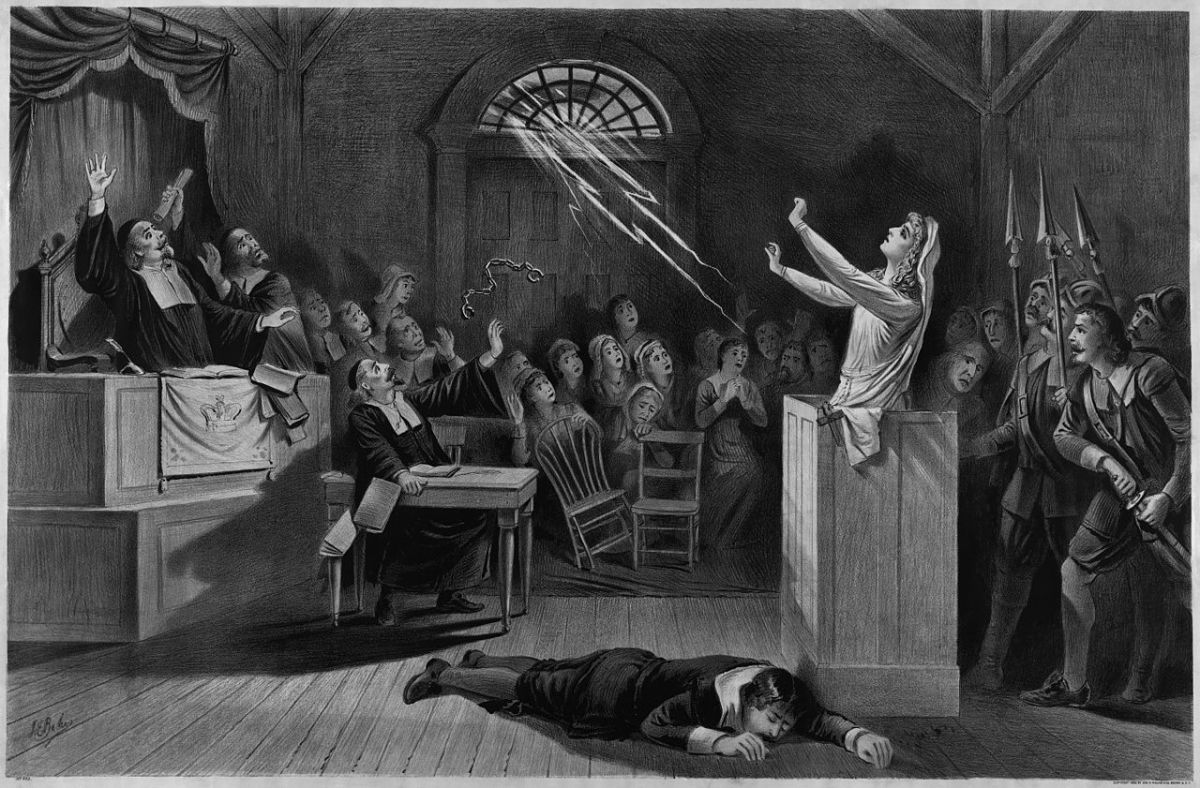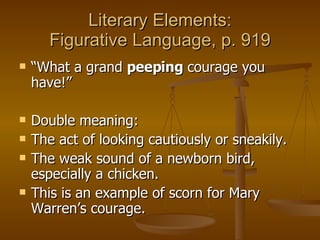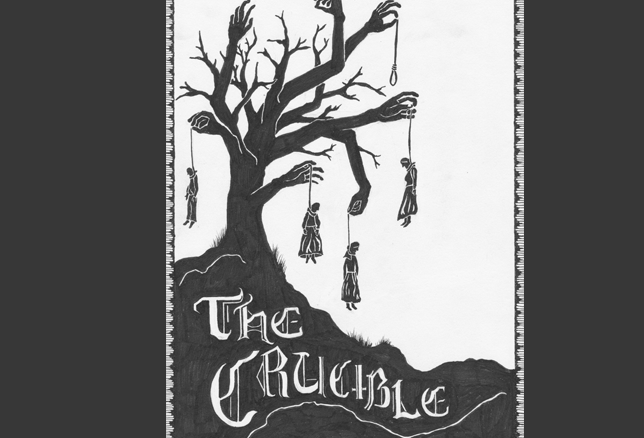The Crucible is a play written by Arthur Miller in 1953. It is a fictionalized retelling of the Salem witch trials that took place in Massachusetts in the late 17th century. At its core, The Crucible is a commentary on the social and political climate of the time in which it was written, as well as a commentary on the human condition.
The title of the play, "The Crucible," refers to the intense pressure and scrutiny that the characters in the play are subjected to. The word "crucible" refers to a vessel in which metal is melted down and purified through the application of extreme heat. In the context of the play, the crucible represents the intense pressure and scrutiny that the characters are subjected to as they are accused of being witches and forced to stand trial.
One of the central themes of The Crucible is the danger of mob mentality and the power of fear and suspicion to drive individuals to act against their better judgment. Throughout the play, the characters are driven by fear and a desire to protect themselves and their families, leading them to make decisions that ultimately have disastrous consequences. This theme is particularly relevant in the context of the McCarthy era, during which the play was written, as many people were accused of being communists and subjected to intense scrutiny and persecution.
Another theme of The Crucible is the corrupting influence of power. Throughout the play, the character of Abigail Williams, a young girl who is the central figure in the witch trials, is shown to wield an incredible amount of power and influence over the other characters. She uses her power to manipulate and deceive others, ultimately leading to the destruction of many lives. This theme is a commentary on the corrupting influence of power and the dangers of allowing individuals to wield too much control over others.
The Crucible is also a commentary on the human condition and the ways in which individuals can be swayed by their own emotions and desires. Many of the characters in the play are driven by their own personal agendas, leading them to make decisions that ultimately have tragic consequences. This theme is particularly relevant in today's world, as many people continue to struggle with the balance between their own self-interest and the greater good.
Overall, The Crucible is a powerful and thought-provoking play that serves as a commentary on the social and political climate of the time in which it was written, as well as a commentary on the human condition. Its themes of mob mentality, the corrupting influence of power, and the dangers of being swayed by one's own emotions and desires continue to be relevant today, making it a timeless and enduring work of literature.







